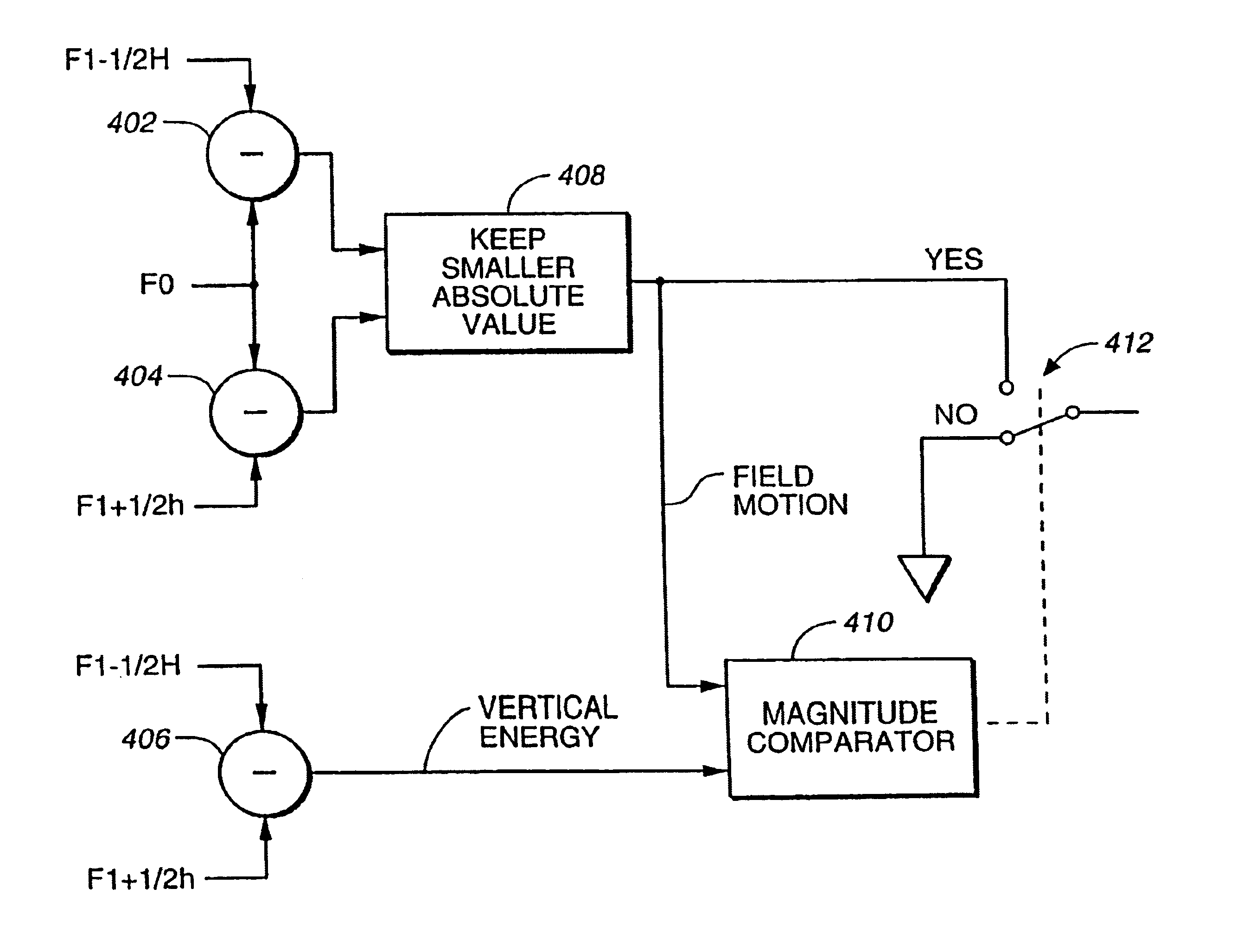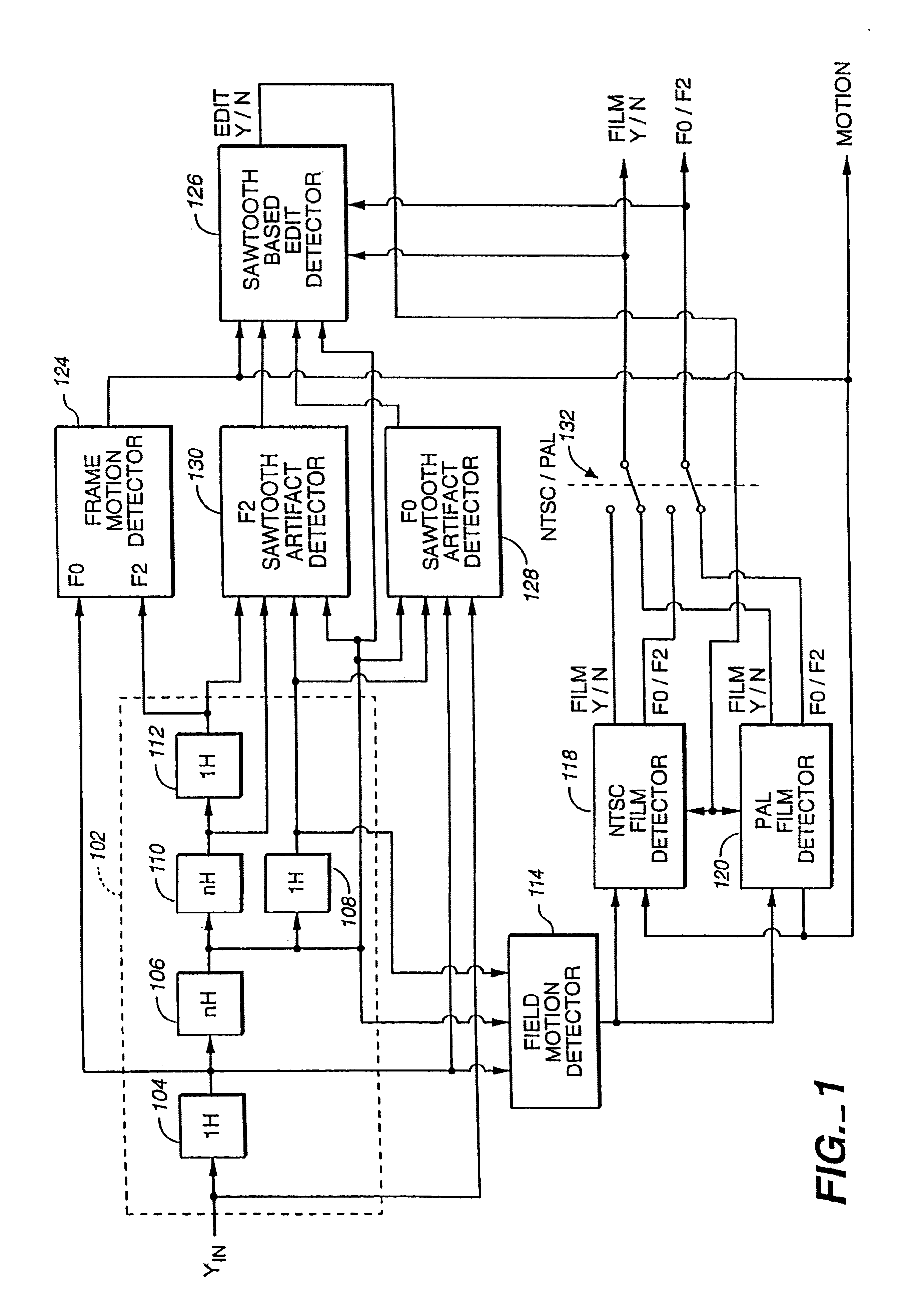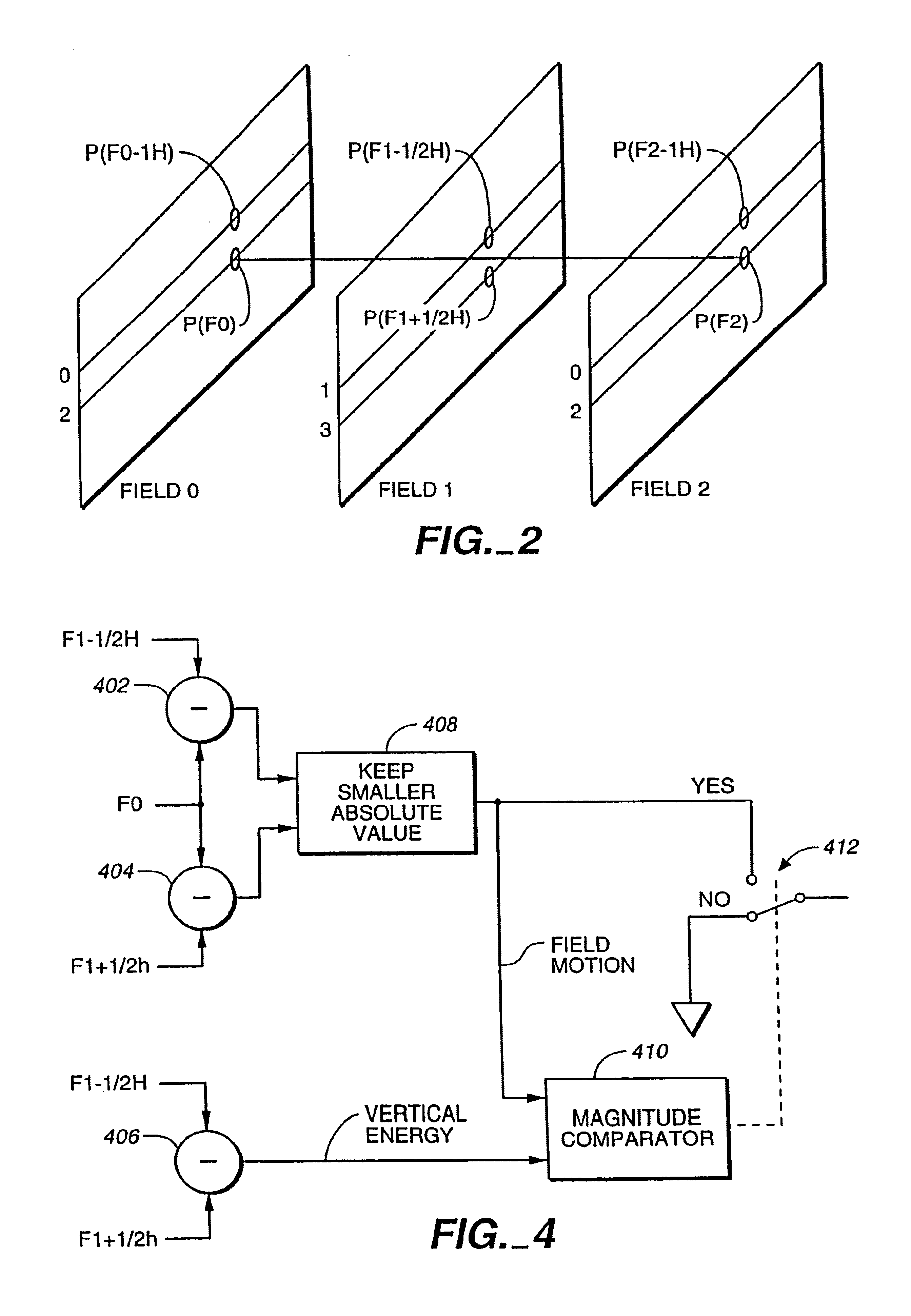Film source video detection
a film source and video technology, applied in the field of television signal processing, can solve the problems of inability to consistently switch between operating regimes, motion may not be properly detected at all, time difference between fields of interlaced television signals, etc., and achieve the effect of improving the ability to distinguish motion
- Summary
- Abstract
- Description
- Claims
- Application Information
AI Technical Summary
Benefits of technology
Problems solved by technology
Method used
Image
Examples
Embodiment Construction
Except as noted herein, practical embodiments of the invention may be implemented using analog, digital (including digital signal processing with software), or hybrid analog / digital techniques. The equivalency of analog and digital implementations in most contexts is well known to those of ordinary skill in the art.
Throughout this document, for simplicity, signal inputs and outputs are drawn as single points and signal carrying lines are drawn as single lines. It will be understood that, in practice, more than one input or output point and more than one signal carrying line may be required, depending on the format of the signals and the manner in which the practical embodiments of the invention are physically constructed.
It should also be understood that functions shown separately may be combined with others in whole or in part. In addition, those of ordinary skill in the art will understand that, in practice, switches shown throughout the various figures will be implemented electro...
PUM
 Login to View More
Login to View More Abstract
Description
Claims
Application Information
 Login to View More
Login to View More - R&D
- Intellectual Property
- Life Sciences
- Materials
- Tech Scout
- Unparalleled Data Quality
- Higher Quality Content
- 60% Fewer Hallucinations
Browse by: Latest US Patents, China's latest patents, Technical Efficacy Thesaurus, Application Domain, Technology Topic, Popular Technical Reports.
© 2025 PatSnap. All rights reserved.Legal|Privacy policy|Modern Slavery Act Transparency Statement|Sitemap|About US| Contact US: help@patsnap.com



